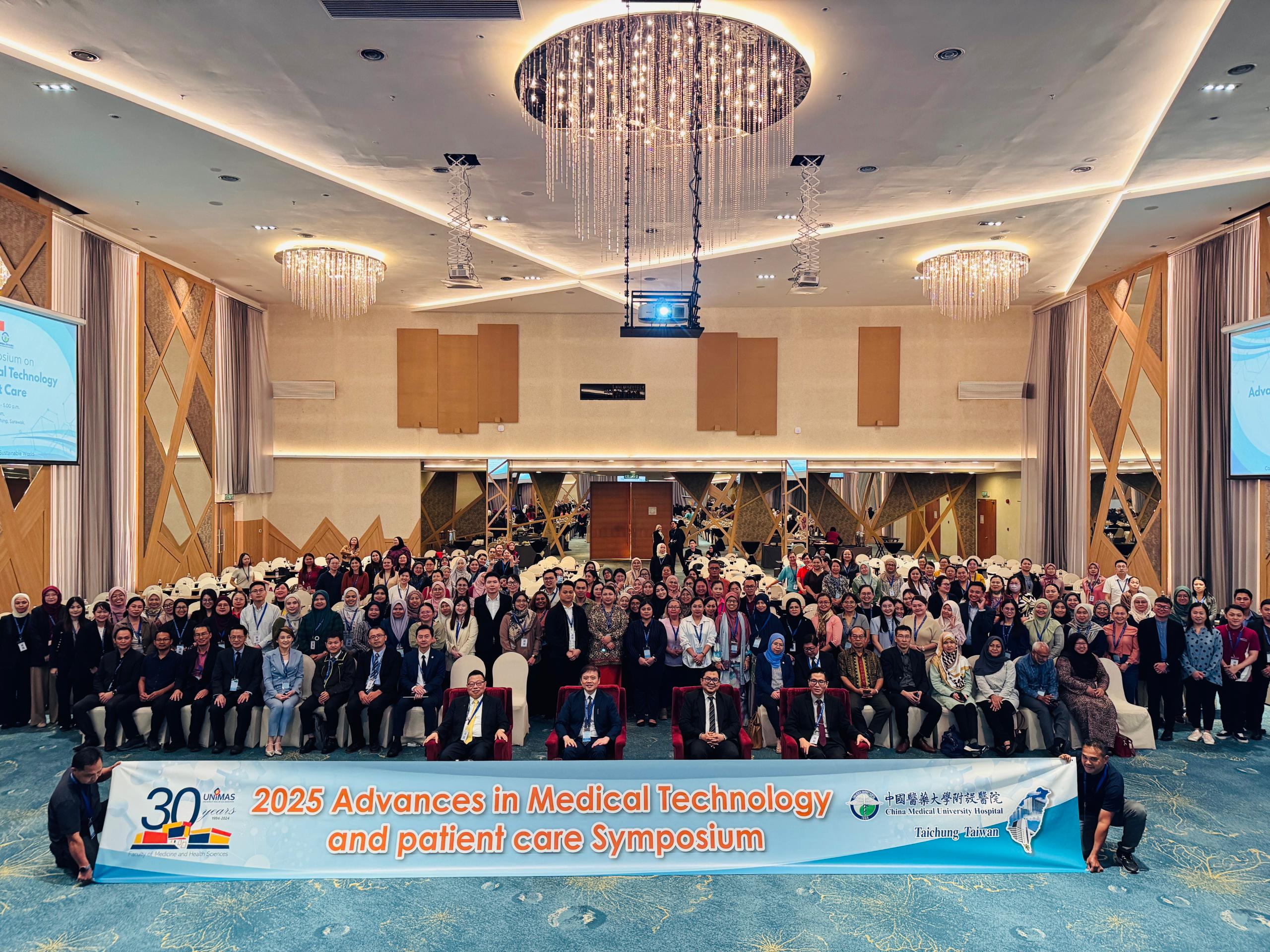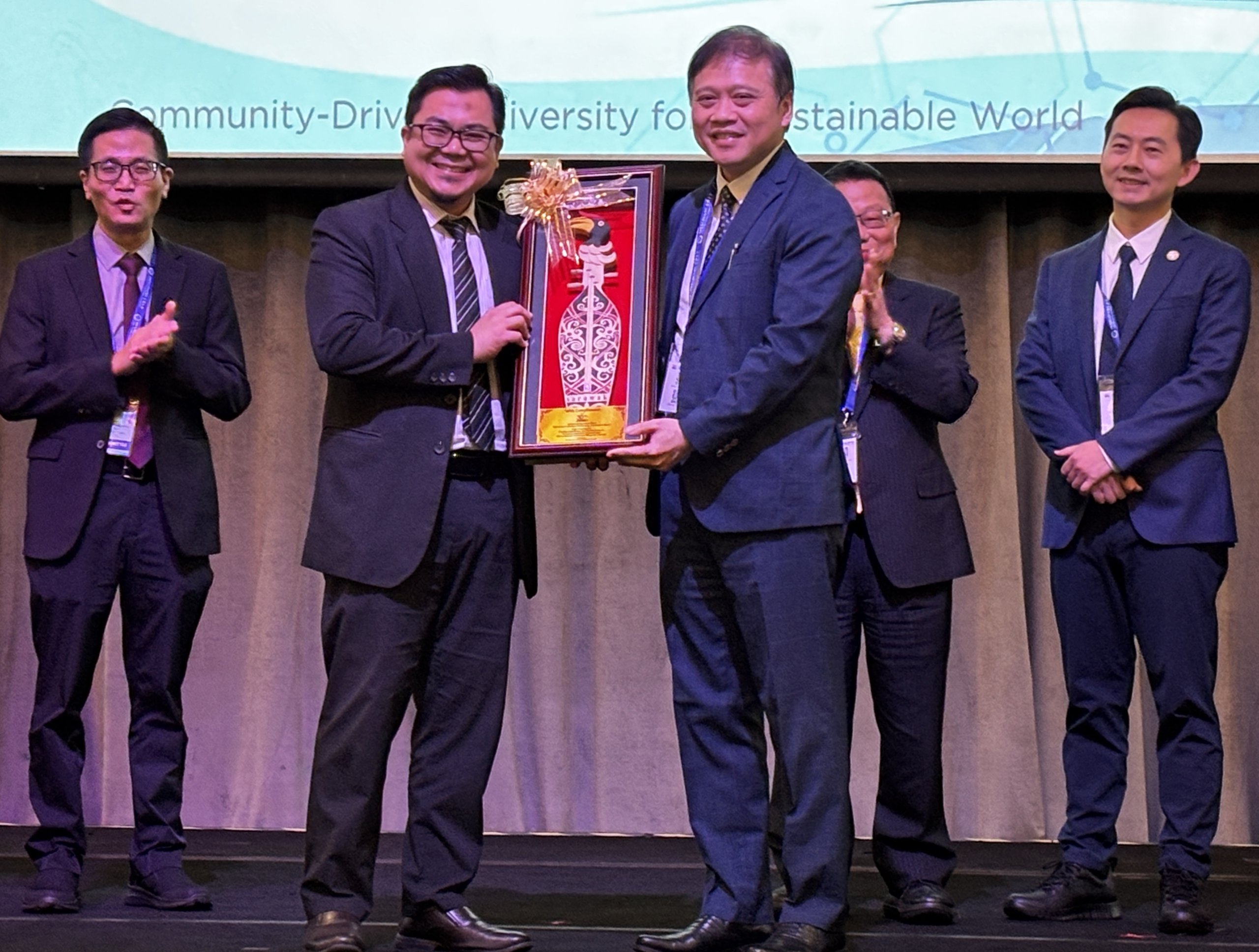Publish Date:2025-07-14
By Kentigern Minggu on July 12, 2025, Saturday at 1:20 PM

KUCHING (July 12): Universiti Malaysia Sarawak (Unimas) and Taiwan’s China Medical University Hospital (CMUH) co-hosted the inaugural symposium on ‘Advances in Medical Technology and Patient Care’ today, following a memorandum of understanding signed between the two institutions in 2024.
Unimas vice-chancellor Prof Dr Ahmad Hata Rasit, in a speech delivered on his behalf by Dean of the Faculty of Medicine and Health Sciences (FMHS) Prof Dr Asri Said, said the university actively fosters global partnerships to boost research impact and enrich student learning.
“This symposium marks the beginning of what I believe will be a vibrant and enduring academic relationship between CMUH and Unimas,” he said.
CMUH International Center Superintendent Dr Chih-Kun Huang said the event not only showcased Taiwan’s progress in precision medicine and healthcare innovation but also marked a new chapter of collaboration with Malaysia.
“We look forward to deepening our shared mission of improving health outcomes across borders,” he added.
The symposium featured frontier advancements in medical technology and clinical care, with a strong focus on obesity management, cancer treatment, medical artificial intelligence, Parkinson’s disease interventions, and atrial fibrillation therapies.
During his session, Huang outlined a multidisciplinary approach to obesity treatment that goes beyond conventional methods such as lifestyle modification and pharmacotherapy.
He highlighted emerging innovations including novel anti-obesity agents, personalised interventions based on genetics and the microbiome, and less invasive endoscopic bariatric therapies, advancements especially relevant for countries like Malaysia where obesity rates are on the rise.
Director of Radiation Oncology at CMUH Dr Chun-Ru Chien, presented the clinical advantages of proton therapy over conventional radiotherapy, noting its ability to precisely target tumours while sparing surrounding healthy tissue, thus reducing side effects.
President of the World Federation of Neuroradiological Societies Dr Wan-Yuo Guo, highlighted how medical artificial intelligence (AI) is transforming healthcare by integrating complex data such as imaging, genomics, pathology, and clinical records.
He emphasised AI’s role in enhancing diagnostic accuracy and enabling predictive, preventive, and personalised medicine.

Asri (second left) presents a memento to Huang during the opening of the symposium in Kuching.
In the field of neurology, Director of Neurology at CMUH Dr Jui-Cheng Chen, introduced the world’s first dual-target Magnetic Resonance-guided Focused Ultrasound (MRgFUS) procedure for Parkinson’s disease, a non-invasive treatment that helps relieve symptoms such as tremor and rigidity, particularly for patients unsuited for deep brain stimulation.
Also featured was senior consultant in Otorhinolaryngology-Head and Neck Surgery at FMHS Unimas Prof Dr Ing Ping Tang, who reviewed recent advancements in otology implants, including cochlear, bone conduction, middle ear, and auditory brainstem implants.
He underscored their growing role in managing complex hearing conditions for patients who gain minimal benefit from conventional hearing aids.
From the Faculty of Resource Science and Technology at Unimas, Prof Dr Edmund Sim introduced the Cancer Risk Assessment Toolkit (CARISA), a subscription-based multilingual digital platform for early cancer risk screening.
It integrates five disease-specific modules covering breast, nasopharyngeal, cervical, lung, and colorectal cancers, and supports English, Malay, Mandarin, and Iban.
Rounding off the event, Director of the Cardiac Arrhythmia Center at CMUH Dr Yen-Nien Lin shared CMUH’s integrated approach to atrial fibrillation management, reducing stroke risk and the need for long-term anticoagulation.